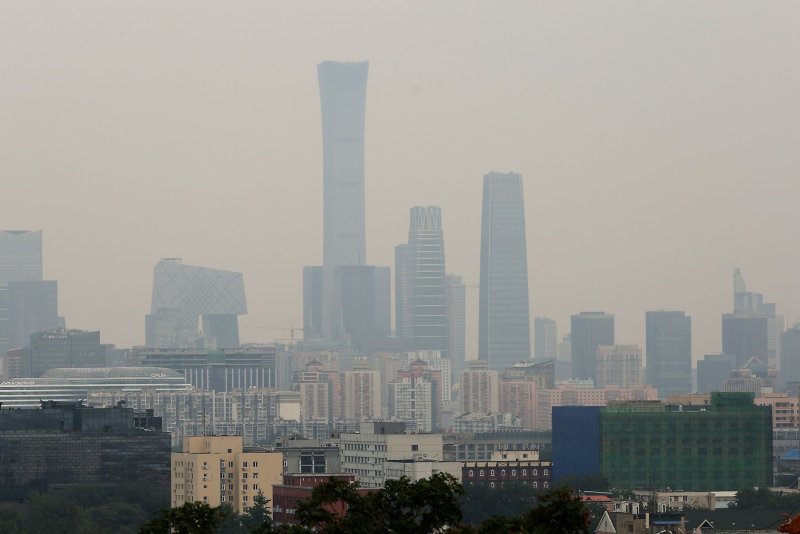A heavy haze hangs over Beijing, China, on September 13, 2019. Tuesday's study said that in comparing prepandemic data from 2019 and 2020, researchers found that pollution levels varied from city to city -- and were even worse than before the pandemic lockdowns in some places. File Photo by Stephen Shaver/UPI |
License Photo
April 26 (UPI) -- Chinese researchers say they have found that big changes in travel patterns due to COVID-19 restrictions appeared to have little effect on urban air pollution, or in some case even worsened it, according to a study published Tuesday.
Leveraging a rare opportunity for research on air pollution afforded by COVID-19 lockdowns, the researchers analyzed the relationship between vehicle traffic and air pollution in 21 cities across China and published the results Tuesday in the academic journal Chaos by the American Institute of Physics.
Rather than finding a consistent link between reduced traffic and lower pollution in each city as expected, the analysts instead found that pollution levels in individual cities were influenced by conditions in other, nearby cities where lockdown conditions may have been different.
Thus, in comparing prepandemic data from 2019 and 2020, the researchers found that air pollution levels varied from city to city -- and were even worse than before the pandemic lockdowns in some places -- depending on the level of restrictions elsewhere in the region.
Air quality levels in Chinese regions such as Beijing-Tianjin-Hebei, the Chengdu-Chongqing Economic Circle and central China were all influenced by surrounding areas, tending to peak just as initial progress for containing the virus was made, the analysts found.
For instance, data showed that pollution in Beijing-Tianjin-Hebei area and central China lessened over time but then spiked as control measures for outbound traffic from Wuhan and Hubei were lifted.
"Air pollution in big cities, such as Beijing and Shanghai, is more affected by other cities," said study author Saini Yang.
"This is contrary to what we generally think, that air pollution in big cities is mainly caused by its own conditions, including the traffic congestion."
"Our discovery is that in order to improve air pollution, it is not only necessary to improve and reduce our own urban traffic and increase green travel, but also need the joint efforts of surrounding cities," author Na Ying said.
"Everyone is important in the governance of commons."















